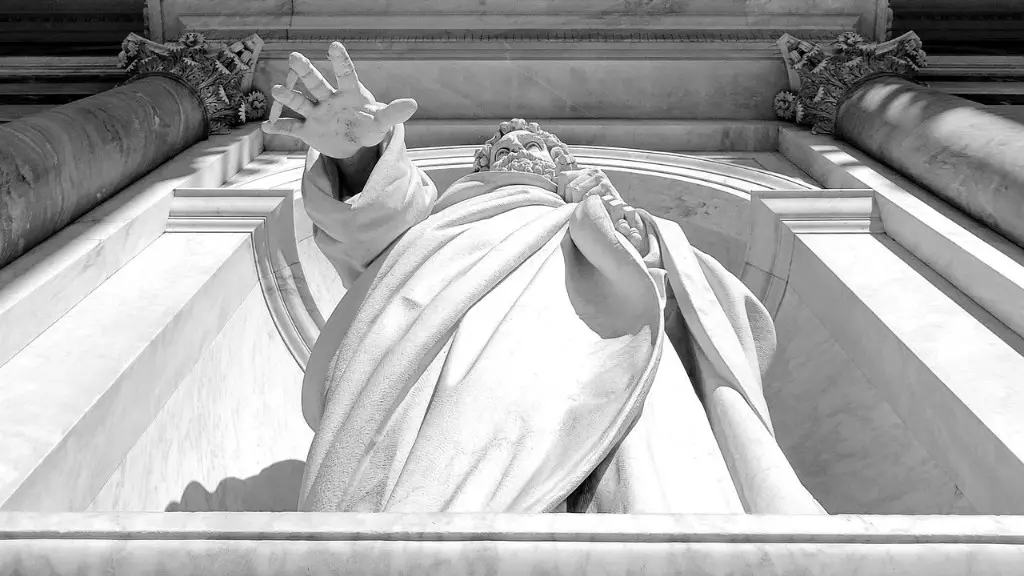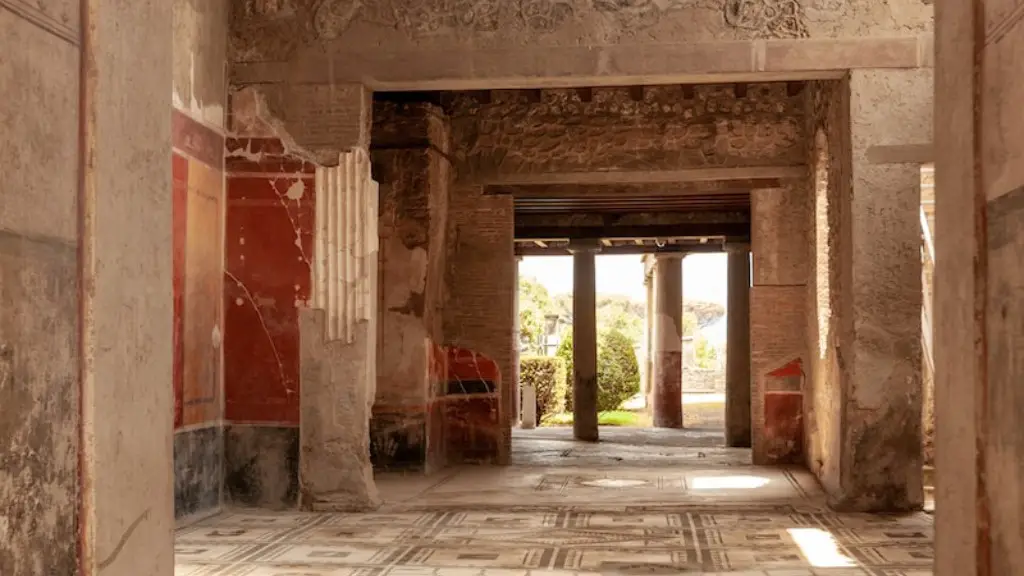The first consul in ancient Rome was elected in 509 BC. This office existed until the fall of the Roman Empire in 476 AD. During the Republic, the consul was the most important political office and wielded significant power. They had the authority to declare war, to lead the army in battle, and to enact laws. They were also responsible for overseeing the judicial system, the religious ceremonies, and their own finances.
The consuls were elected by the people for a period of one year. The two consuls served as a judicial court and had the power to override the decisions of lower magistrates. The consuls had an advisory council which was composed of ten members. This council, known as the Senate, was charged with providing advice and assistance to the consuls.
The consuls were also the highest ranking members of the military. They had the power to command the Roman Legions during wartime and led them in battle. In addition to military duties, the consuls were also responsible for managing and maintaining the state’s financial resources and safeguarding the financial investments of the Roman Republic. Moreover, the consuls had the power to receive foreign ambassadors, to grant pardons, and to mint and distribute coinage.
The importance of the consuls and their role in the Roman state were two-fold: they were both an executive and a legislative body. They were the highest executive authority of the Republic, as they had the power to execute and enforce the laws passed by the Senate. At the same time, they also served as a legislative power and had the authority to write and pass laws. Their power was limited to passing laws, however, and they could not override the decisions passed by the Senate.
The Role of Censor
The censor was a consular office in ancient Rome, created to maintain morality and order within the city-state. The censor was chosen by the people, usually along with their co-consul, every 5 years. They of course had the authority to revise existing laws, including ones related to morality, but their goal was much more than that: to maintain an atmosphere of morality and public decorum among Rome’s citizens.
One of the censor’s most distinctive features was his absolute power to strip a citizen of his civil rights. If a citizen failed to maintain a minimum standard of moral behavior, the censor was authorized to strip him of his civil rights and possibly exile him. The censor also had the authority to execute capital punishment for particularly heinous offenses.
In addition to punishing citizens for immorality, the censor was also tasked with enumerating the Roman population in order to assess taxes and enforce military conscription. It was also the censor’s responsibility to oversee the construction of roads and aqueducts, and ensure that the public treasury and the taxes it contained were kept in order. As such, he was one of the most influential figures in Roman society.
The Role of Tribune
The tribune was a vital role in the Roman Republic and was an important part of the government. The tribune was chosen by the people and was a representative of their interests in the Senate and Forum. The tribune had the authority to veto any law passed by the Senate, which gave them great power in the Republic. This made the tribune a check on the power of the Senate and provided some degree of balance in the politics of the Republic.
The tribune was responsible for protecting the rights of the lower classes in the Republic and ensuring that the government was acting in their best interests. He had the authority to investigate matters of public corruption and malpractice and could put public officials on trial for their crimes. The tribune could also mitigate the burden of taxation by vetoing laws that put too much of a load on the lower classes.
The Role of Pontifex Maximus
The Pontifex Maximus was the most important religious office in Ancient Rome, and it was held by the most important person in Roman religion. This official was the head of the entire Roman religion, and their main responsibilities included supervising the Roman calendar and overseeing all the official religious rituals of the Roman state.
The Pontifex Maximus was chosen by the Senate and was in charge of appointing the Vestal Virgins, the highest order of female religious officials in the Roman Republic. This included making sure the Vestal Virgins conducted the religious ceremonies and festivals correctly, and that the sacred fire of the goddess Vesta was always burning brightly.
The Pontifex Maximus had the power to interpret and change existing laws in relation to religious matters. They were also responsible for maintaining the public cults of the gods, overseeing the daily rituals and offerings, and training the priests in the proper performance of sacrifices.
The Role of Dictator
The dictator was the Supreme Commander of the Roman Republic, and their primary duty was to protect the state from external threats. The dictator was chosen by the Senate as a saviour of the state, and they were given supreme power to ensure the safety of the Republic. The Latin name for dictator is literally “one who dispenses justice.”
The dictator had absolute power and was accountable to no one during their term. They served as the head of state and the commander of the military, and the Senate was bound by their decree. The dictator had the right to issue laws, hear appeals, and pass judgement, and all of their decisions were final.
The power of the dictator rarely lasted more than six months, as they were allowed to hold office only in moments of extreme peril. After the immediate danger had passed, their term would come to an end, and the Senate would resume its normal operations.
The Role of Magistrate
Magistrates were highly respected officials who helped the Senate govern the Republic. They were elected by the people to serve one-year terms, and their role was to carry out and enforce the laws of the Republic. Their powers ranged from minor tasks like collecting taxes or levying fines to more important roles, like condemning criminals or overseeing military logistics.
The most significant job of the magistrates was to ensure that the laws of Rome were obeyed. They were charged with upholding justice and keeping order within the Republic. As such, they were empowered to investigate disputes, negotiate settlements, and pass judgement on criminal matters.
In addition to their judicial role, magistrates were also important figures in their local communities. They were responsible for organizing projects, such as constructing public buildings, as well as for consolidating the population’s interests in various areas of life.
The Role of Praetor
The praetor was a high-ranking official in the ancient Roman Republic, and their main responsibility was to serve as a judge in the courts. The praetor’s primary duty was to hear cases and ensure that justice was served. They had the authority to settle legal disputes, pass judgement on criminal matters, and impose sentences on those found guilty.
In addition to their judicial role, the praetor was also responsible for governing a province. This position gave them significant military powers, as they served as a commander in the military while abroad and had the authority to lead armies in battle.
The position of praetor was highly revered in Roman society. Their duties were essential to the functioning of the Republic and ensured the peace and stability of the state. The praetor was also an important figure in Roman religion, as they were responsible for carrying out the religious ceremonies and ensuring that the gods were honoured and revered.

